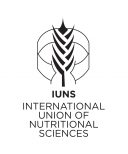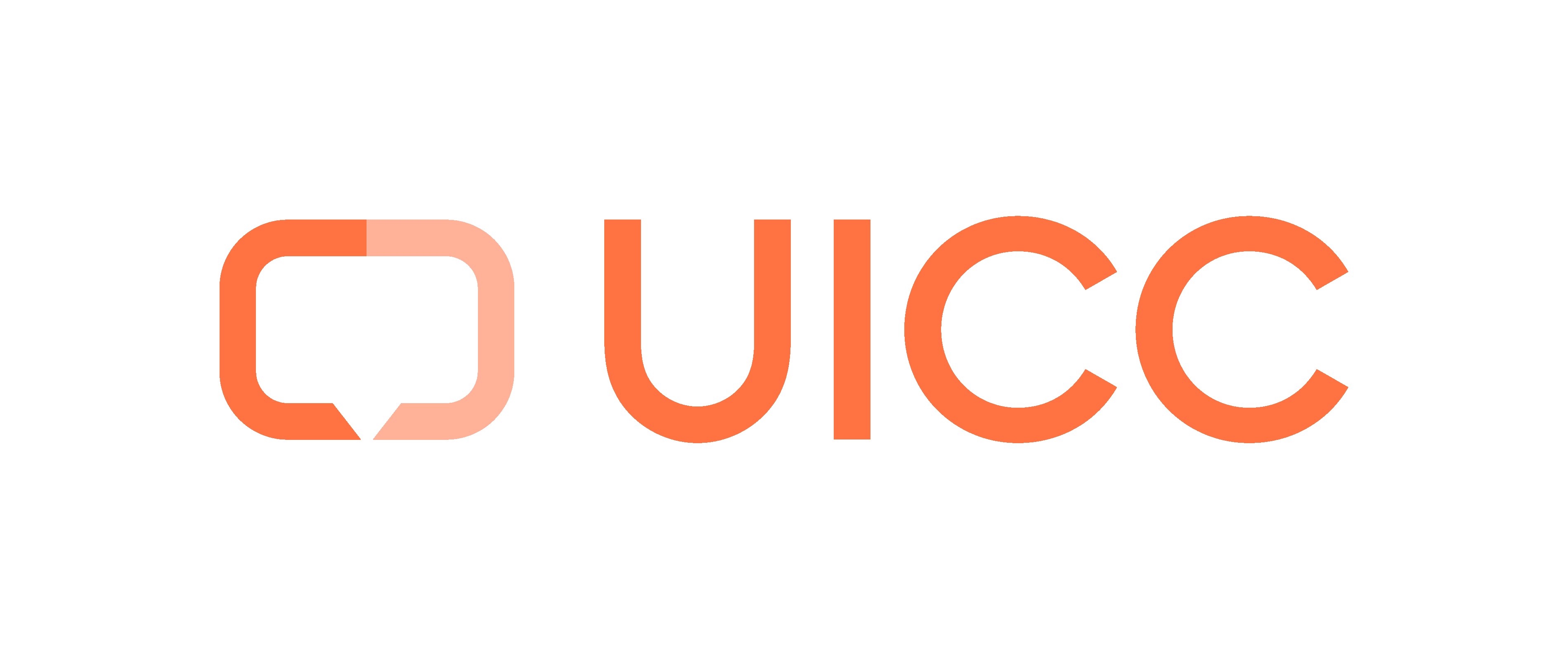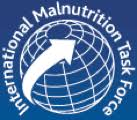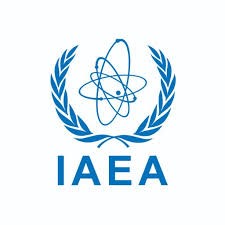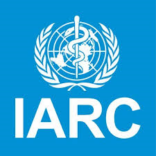Current areas of focus
ICONIC has taken practical steps towards establishing activities in several areas recognised as being fundamental for developing science and its application to improving people’s lives. As a reminder, so far, activities have been carried forward around the following critical themes:
- Building broader capability and more robust capacity for excellence in research and practice in Africa, with the longer-term ambition to develop a high-quality, context-specific research programme in this region;
- Facilitating international collaboration and developing activities in the area of childhood cancers, in order to create an international Community of Practice with a focus on diet, nutrition, physical activity and cancer in children, teenagers and young adults (CTYA). This Community of Practice is building alignment of research and communication to advance the adoption of essential practices and better inform care for young cancer patients;
- Establishing the particular role played by professional nutritionists in preventing cancer by establishing school meals as a system to improve the health of school children as well as become a vehicle for broader education on the nature and origin of foods and diets, their biological functions, their relationship to health, social structures, economics and more general social connections.
- Developing a framework for making prehabilitation more widely available (in terms of personalised management of exercise, nutrition and psychological support before the start of definitive treatment) in the context of quality implementation science.
Capacity building in Africa
APPLICATIONS OPEN FOR THIS YEAR’S ONLINE CANCER AND NUTRITION EPIDEMIOLOGY GRANT WRITING COURSE – Find out more and apply!
While the incidence of cancer is rapidly increasing in LMICs and changing dietary patterns play an important role, grant proposals on nutrition and cancer submitted by LMICs scientists rarely qualify for funding. Working with Wageningen University and a newly formed group of African scientists within the African Nutrition Society, Cancer and Nutrition in Africa (CANA), the aim has been to develop an online course to enhance capability in the preparation of grant applications, across Africa in the first instance, as an imperative for the development of a high quality, relevant and context specific research programme in this region. The longer-term ambition is to develop a series of studies across the continent using standardised and validated methodologies that together will create the equivalent of an EPIC (European Prospective Investigation into Nutrition and Cancer) for Africa.
The Cancer and Nutrition Epidemiology in Africa online grant writing course is based on experience of similar courses within Wageningen University and intends to cover various aspects of grant writing such as formulating a research question, designing the most appropriate study, calculating study size, planning and budget, as well as other training skills relevant for grant writing. A pilot study was conducted early in 2021 as part of Wageningen University’s ongoing distance learning programme, offering a chance to evaluate and refine the course at an early stage. CANA is made up of a group of committed African scientists who themselves completed the first pilot study – Professor Reggie Annan, Dr Isaac Agbemafle, Dr Keiron Audain and Dr Elom Aglago. With support from Wageningen University and ICONIC, CANA then planned and led two further pilot courses modified to be sensitive to the African context, offered in West Africa later in 2021 and 2022. Since then the course has been offered to African scientists on a regular basis – to date 39 participants have come from 13 countries and their written evaluations at the end of each course indicate that the course is fit for purpose, fulfilling aspirations and well accepted by those taking part. Dr Agatha Onyango and Dr Calistus Wilunda, who graduated from the course more recently, have also joined the CANA team.
The potential impact of the course is reflected in its success with a competitive international grant award. A team led by Professor Reggie Annan successfully secured a project grant from the World Cancer Research Fund as part of their Regular Grant Programme, to investigate aspects of breast cancer among sub-Saharan women (see more information at: Breaking new ground: our 1st grants in Ghana and on brain cancer among £4m of new research | World Cancer Research Fund).
The online course will continue to be offered each year to African scientists who want to gain knowledge and experience with writing grant proposals in this specialist area.
APPLICATIONS ARE NOW OPEN FOR THIS YEAR’S COURSE! The course will run for 10 weeks from 1st September. Deadline for applications is 15th June.
In recognition of the importance of building research capacity in Africa, the activity has received support from the UK Nutrition Society (in 2022 and 2024) and the Love Hope Strength Foundation (in 2023).
Developing a Quality Assurance Framework for Cancer and Nutrition
There is increasing acknowledgement of the absence of quality assurance data internationally for the formulation of secure policy, particularly in the area of cancer and nutrition, and this has been identified as a fundamental constraint which limits progress towards every aspect of the UN Sustainable Development Goals.
For research studies, the training and oversight of those taking measurements is usually conducted with care, but this is not necessarily the case in the context of routine care, even though life and death decisions might be based on the interpretation of these measurements. More recently, there has been promotion of digital health platforms in which measurements taken as part of routine care by persons of uncertain skill and competency are to be used either individually or aggregated to determine policy, for programmatic purposes and as the basis for individual clinical judgements. This raises a serious concern about the validity and utility of measures taken by staff without formal training, oversight, and some form of quality assessment. Needs have been identified for:
- Standardisation of measurement methodology and protocols
- Defined training and demonstrable competency of those responsible for making and supervising measurements
- Measures to be conducted within a QAF that provides the necessary structures and systems to monitor performance and fidelity against defined processes.
A Working Group of ICONIC was tasked with the development and escalation at scale of a Quality Assurance Framework, initially for anthropometry, but eventually for other markers of nutritional wellbeing. The ambition is that this should be available across sub-Saharan Africa as the Quality Assurance Framework and Nutrition for Africa (QAFANA) for the collection and curation of secure nutritional data that can be used with confidence for policy, planning, monitoring and evaluation in critical areas of the health sector (cancer), the education sector (childhood obesity) and the agricultural sector (food and nutrition security).
As a first step, colleagues from Ghana spent two weeks at the University of Southampton for training and competency assessment required to the level of trainer. During their stay, the Working Group had the opportunity to also discuss the wider introduction of QAFANA: its scope, nature and strategy.
Two recognised Centres for Nutritional Assessment (CNAs) were subsequently established in host academic institutions in Ghana: Kwame Nkrumah University of Science and Technology (KNUST) in Kumasi and the University of Health and Allied Sciences (UHAS) in Hohoe.
In 2024, progress was consolidated with activities including extension of training locally and the preparation of materials necessary for governance, administration, and specific standard operating procedures. The first reference standard for length and mass were manufactured and validated locally, in collaboration with the Engineering Department at the Kwame Nkrumah University for Science and Technology.
In March 2025, a second training workshop was hosted at KNUST, bringing together the five public academic institutions in Ghana with specific responsibility for undergraduate and postgraduate training in nutrition, dietetics and public health nutrition – KNUST, UHAS, University for Developmental Studies (UDS), University of Cape Coast (UCC) and the University of Ghana (UoG). The purpose of the workshop was to explore how these institutions might work together to develop a standardised approach to anthropometry training and competency assessment within a Quality Assurance Framework (QAF) – this will include enhanced competency-led skills training of those in both undergraduate and postgraduate training, as well as those working within the Ghana Health Service and National Surveillance and Statistics. The workshop highlighted the need to:
- Formalise working arrangements between the five institutions.
- Harmonise the delivery of training and competency assessment within a national program for both those in training and those already qualified working across the health system.
- Put in place processes to establish a QAF to improve the assessment of nutritional status for surveillance, community health and clinical care.
An Executive Board for the QAFANA activity in Ghana is now being established with representation from the five institutions, together with representation from the Ghana Health Service, National Surveillance and Statistics, Ghana Academy of Nutrition and Dietetics (GAND), African Nutrition Society (ANS), Federation of African Nutrition Societies (FANUS), and ICONIC. As a first step, the Executive Board will be responsible for clearly stating a) the purpose, processes, outcomes and impact of the QAFANA activity, b) key deliverables and timelines, and c) resource requirements and a budget forecast. It will also begin formally seeking financial support for the activity.
Alongside consolidating the activity in Ghana, the ambition following the workshop is to also explore how QAFANA might be extended to Cameroon (with the two colleagues from Cameroon who attended the recent training), as well as more widely across Africa.
Funding for the activity has so far been received from the World Cancer Research Fund (WCRF) International and the Love Hope Strength Foundation. Dr Panagiota Mitrou from WCRF said “WCRF is delighted to be able to support this important initiative and help Africa be a beacon of good practice for the rest of the world.” If you are interested in participating or supporting the activity, please get in touch with Rachel Marklew (r.marklew@wcrf.org).
Nutrition in children, teenagers and young adults (CTYA)
Despite improvement in treatment and outcomes, cancer remains an important cause of death in childhood, and survivors carry significant risks to their long-term health in adult life. The response to treatment, survival and health outcomes, of children, teenagers and young people (CTYA) with cancer, is greatly improved, when attention is given to diet, nutrition and physical activity as integral to routine care.
Establishing a Community of Practice
It is recognised that the efforts of those who are working to achieve more successful outcomes would be greatly strengthened, if relevant experience could be shared more readily, through the use of a suitable and accessible platform. ICONIC, together with the Aladina Foundation in Spain and Cancer Warriors Foundation in the Philippines, explored how this might be achieved through establishing a Community of Practice (CoP) to facilitate the exchange of knowledge and experience in this area. The WHO Knowledge Action Portal on Non-Communicable Diseases (KAP), hosted by the WHO’s Global Coordination Mechanism on the Prevention and Control of Non-communicable Diseases (GCM/NCD), offers a readily accessible web-based platform for this CoP to be developed. Four stakeholder consultations have been held since December 2023 to introduce the proposal, invite comment and seek support.
The new community Nutrition and Cancer in Children, Teenagers and Young Adults (CTYA) is free to join and open to all those interested in sharing knowledge and experience in relation to diet, nutrition, physical activity and cancer in CTYA. Initially it is seeking to create a sustainable collaborative network of clinicians and researchers, to seek consensus on best practices and work together to improve the routine care of young cancer patients. In time, we shall provide space for young people with cancer and their families/carers to exchange experiences and share concerns to be addressed. The platform enables the community to share resources, information about events and activity updates, and includes discussion features to promote dialogue, initially via a Noticeboard. A Nutrition and Cancer User Collection has also been created for public access (rather than just to members of the community) which links to resources elsewhere on the KAP as well as externally: Nutrition and cancer: a resource collection | Knowledge Action Portal on NCDs.
ICONIC has been keen to work with stakeholders to develop the platform and has held regular open consultations to introduce the proposal, invite comment and seek support.
A Steering Committee will be formed this year to provide strategic oversight of the activity and review progress – this will be made up of paediatric oncologists and particularly those with experience in relation to diet and lifestyle, as well representation from other oncologists, nutritionists, dietitians and fellow academics. An Editorial Board has also been established to help manage content and keep the platform up to date. The intention is to use the platform with discussion features to promote dialogue, as well as share resources and activity updates via a noticeboard and knowledge repositories.
ICONIC is continuing to work with WHO and the Editorial Board to develop the platform and extend engagement. The collective views of the community are important and ICONIC welcomes your feedback and ideas for new content and features. All are welcome to join future stakeholder meetings and anyone interested in joining the Editorial Board is welcome to get in touch.
The CTYA activity will be the focus of ICONIC’s symposium at the 23rd International Congress of Nutrition (ICN) in August 2025 in Paris, entitled “Co-creating a new knowledge-sharing platform on nutrition and cancer for children, teenagers and young adults (CTYA).”
The activity was also the focus of a session prepared for the digital component of the World Cancer Congress in September 2024 , as well as a second Virtual Dialogue hosted in collaboration with UICC in November 2024. See more information on the Events page.
School Health and Nutrition
ICONIC has contributed directly to the global school feeding initiative of the School Meals Coalition launched in 2021 with the World Food Programme as the lead agency and supported by UN Nutrition. ICONIC was instrumental in the formation of a Special Interest Group within the Nutrition Society and continued to explore opportunities to collaborate with the Coalition, and its Research Consortium, to improve the health, nutrition status and wellbeing of school children across LMIC, with a focus on Africa. In October 2022, together they offered a session to celebrate the first year of the School Meals Coalition – session titled ‘Schools as a system to improve nutrition’ (available on the School Meals Coalition YouTube channel) which discussed issues affecting the delivery of school meals to children in the global south, and what strategies could be adopted to improve coverage and delivery of safe/quality school meals.
ICONIC played a major role in planning a Regional Workshop on School Nutrition, convened by the African Nutrition Society at the University of Cape Coast in Ghana in October 2024, as a pre-conference to the 9th Africa Nutrition Conference (ANEC). This pre-conference workshop gathered experts from Africa and beyond, including academics, researchers, development partners, NGOs, and policymakers, to address the importance of school health and nutrition and the special role that professional nutritionists might play.
An ad hoc team of the ANS has been working hard to publish the proceedings from the Workshop, as well as a report drawing on this experience together with the history and wider experience – this report will include recommendations for a plan of coordinated action. Look out for these two publications coming soon!
This activity will be the focus of the International Malnutrition Task Force’s symposium at the 23rd International Congress of Nutrition (ICN) in August 2025 in Paris, entitled “Developing professional nutrition capacity to advance school health and nutrition in Africa.”
Prehabilitation
In 2019, National Institutes for Health Research, Macmillan (a cancer care charity) and the Royal College of Anaesthetists published a report “Principles and guidance for prehabilitation within the management and support of people with cancer”, The report called for a greater focus on prehabilitation, including nutrition, physical activity and psychological support, in the delivery of cancer care and is in the process of being reviewed and revised. ICONIC is committed to applying this guidance for widened access to structured prehabilitation for people with cancer and to consider how the recommendations might be made more accessible internationally.
In December 2021, ICONIC was pleased to host the second in its series of online Special Focus Dialogues in collaboration with UICC, this one with a focus on prehabilitation and cancer: Special Focus Dialogue: Prehabilitation – Multimodal interventions to improve resilience and response to treatment in cancer | UICC. Experts came together to share their experience in developing, implementing and evaluating prehabilitation interventions. It explored how being nutritionally, physically and psychologically ‘unfit’ can influence the resilience to cancer and how multimodal prehabilitation contributes to help decreasing treatment-related morbidity, increasing cancer treatment options, and improving physical and psychological health outcomes. The session was chaired by Associate Professor Stephen Wootton and speakers included Professor Franco Carli, Dr Stefan Van Rooijen and Dr Sandy Jack.
This was also one of the topics that formed part of ICONIC’s symposium at the 22nd IUNS International Congress of Nutrition (ICN) in Tokyo in December 2022.
The 2019 report is in the process of being revised and ICONIC remains involved with special concern about how best practice might be made available for LMIC.

